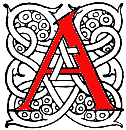 rthur's first test in " The Passing of Arthur" comes when agonizing over the existence of evil — which must be the central problem for any religious faith — he asks the same questions that In Memoriam does: why does it seem " as if some lesser god had made the world,/ But had not force to shape it as he would" (14-15)? Is it perhaps that the earth awaits another god to triumph over evil, making this world good and beautiful? Even as the King voices this doubt (which Tennyson glossed as the " gnostic belief that lesser Powers created the world," [p. 1742 n.]), he realizes that a more likely explanation of evil is that the world is
rthur's first test in " The Passing of Arthur" comes when agonizing over the existence of evil — which must be the central problem for any religious faith — he asks the same questions that In Memoriam does: why does it seem " as if some lesser god had made the world,/ But had not force to shape it as he would" (14-15)? Is it perhaps that the earth awaits another god to triumph over evil, making this world good and beautiful? Even as the King voices this doubt (which Tennyson glossed as the " gnostic belief that lesser Powers created the world," [p. 1742 n.]), he realizes that a more likely explanation of evil is that the world is
wholly fair,
But that these eyes of men are dense and dim
And have not power to see it as it is:
Perchance, because we see not to the close.
In other words, that essential "war of Sense and Soul typified in individuals" which the previous idylls have dramatized is more a matter of epistemology than morality. Tennyson, one recalls, had originally intended to entitle his poem " The False and the True," and in fact it is precisely this opposition and the way man tries to resolve it that provide the larger subjects of the entire Idylls. As Arthur here emphasizes, the problem of distinguishing false from true — the problem of faith — arises in our limited and limiting faculties. " The Passing of Arthur," like In Memoriam, concerns itself with dramatizing the various roads by which men arrive at belief.
Arthur thus resists the first temptation he faces in this idyll, for he refuses to let the evidence of the limited senses crush the soul's faith. But although he has triumphed over a broad theological doubt, he has yet to face the more specific fear that God has abandoned him. He is in great pain because he knows that although he has had faith and kept faith, his great purpose has come to nought. Because all his trust " in wife and friend" (24), which were the foundation of his rule, have been betrayed — because others have not kept faith with him — his " realm/ Reels back into the beast, and is no more" (25-26). Making us think of Christ's plaint on the cross, Arthur exclaims " My God, thou hast forgotten me in my death" (27), but immediately after his brief lapse of faith, he pulls himself up short, affirming his belief that God keeps faith with man: " Nay — God my Christ — I pass but shall not die" (28). Thus having surmounted the doubts which result from his perception of the evils of human nature in general and his own betrayals in particular, the King falls asleep and receives a visionary reward and assurance for his steadfastness when the ghost of the dead Gawain tells him he will find " an isle of rest."
Related Material
- Having Faith and Keeping Faith
- Restoring Faith in "The Passing of Arthur"
- Faithlessness and the Destruction of Community
- Mist and Confusion during the Last Battle
Source
[This lexia has been adapted from George P. Landow, "Closing the Frame: Having Faith and Keeping Faith in Tennyson's 'The Passing of Arthur.'" Bulletin of the John Rylands University Library of Manchester, 56 (1974), 423 — 42.]
Last modified 30 November 2004